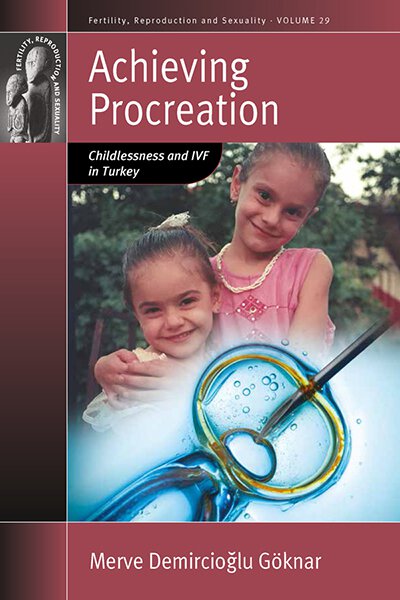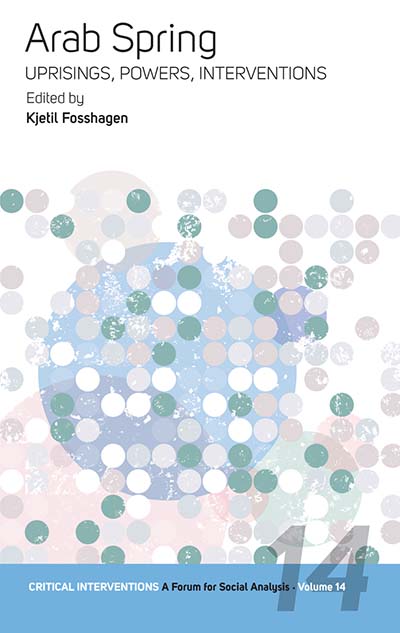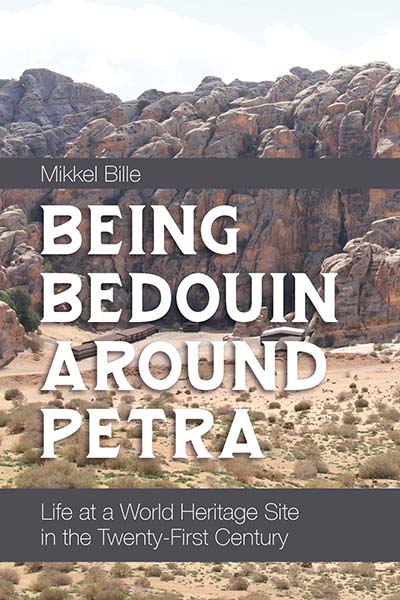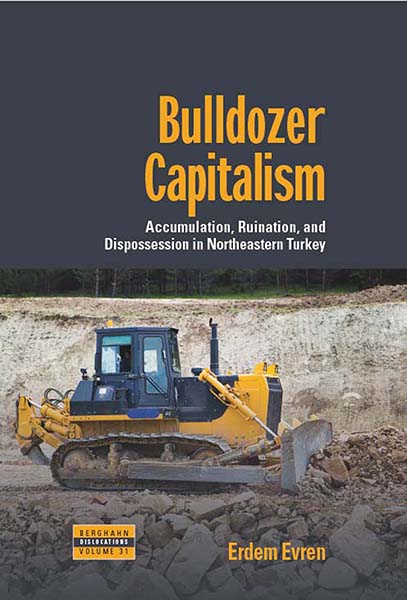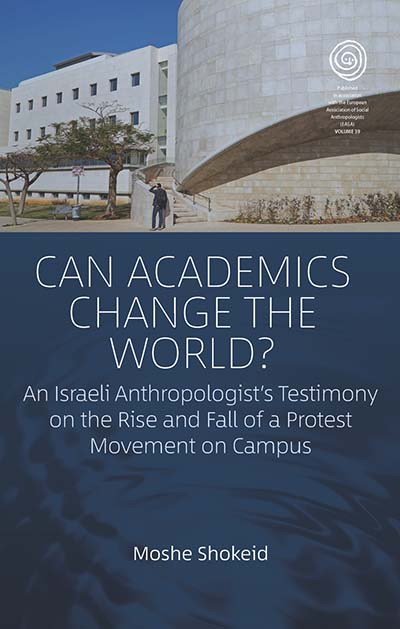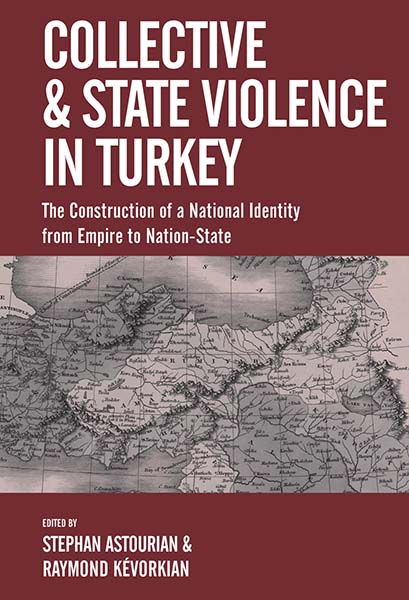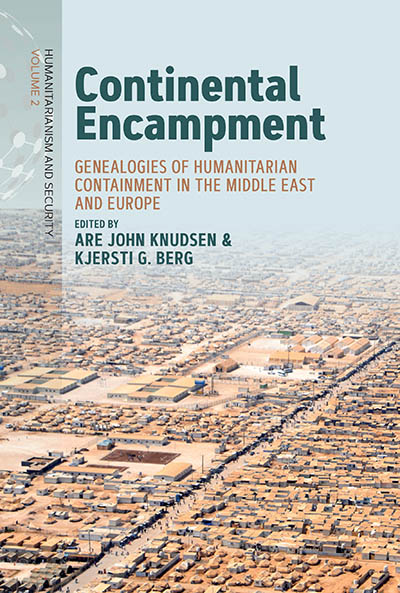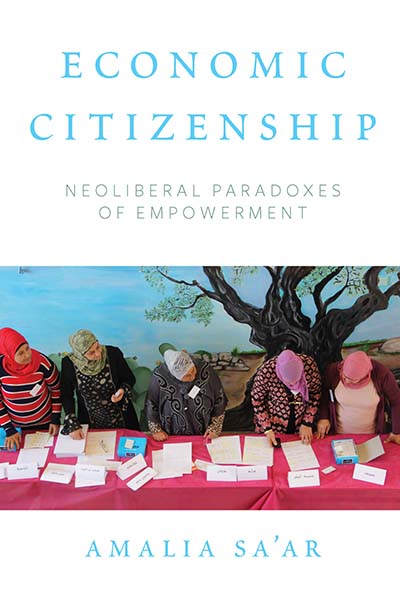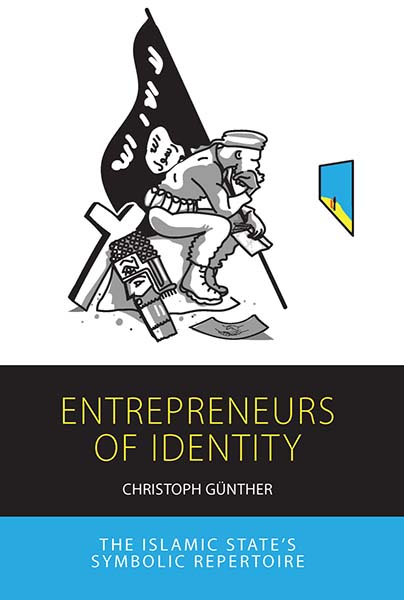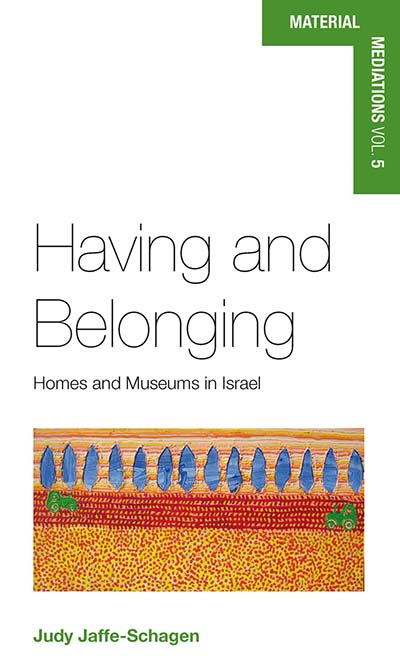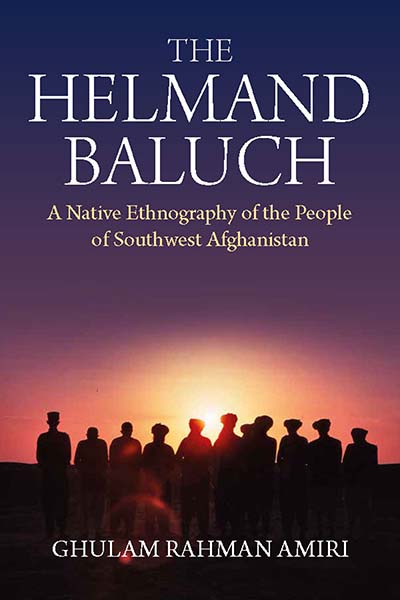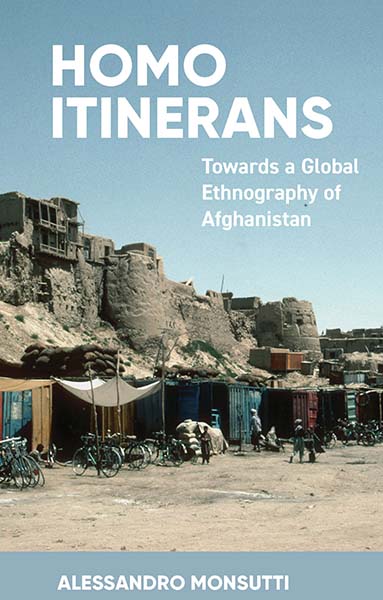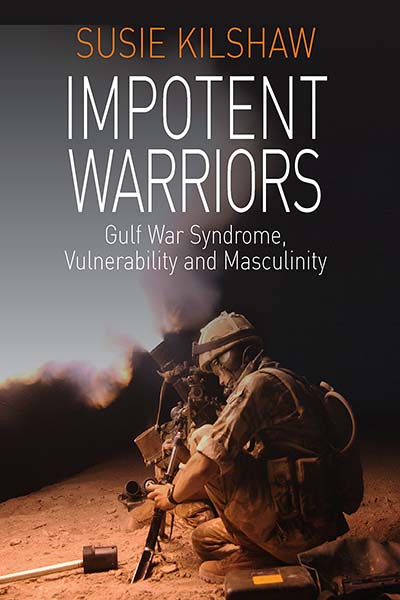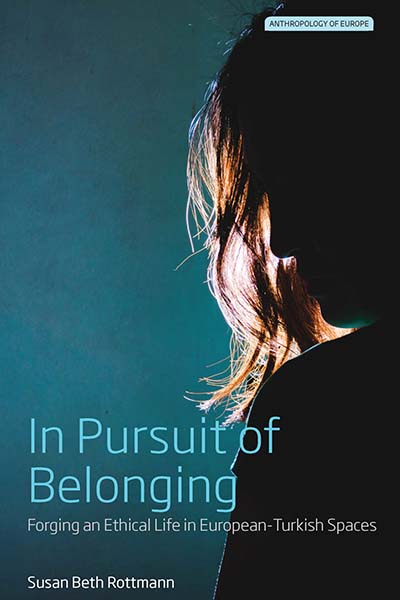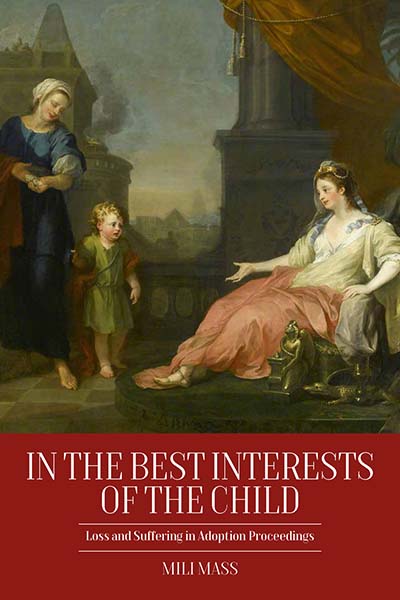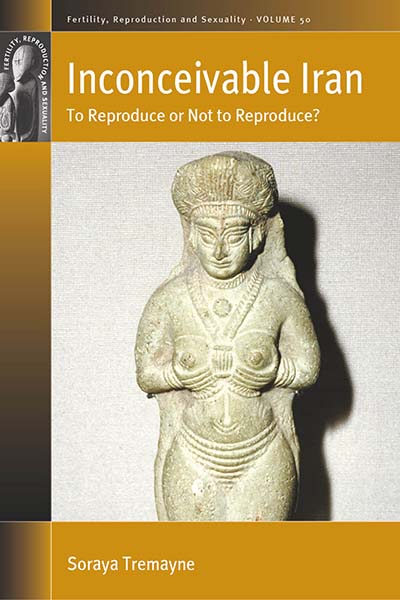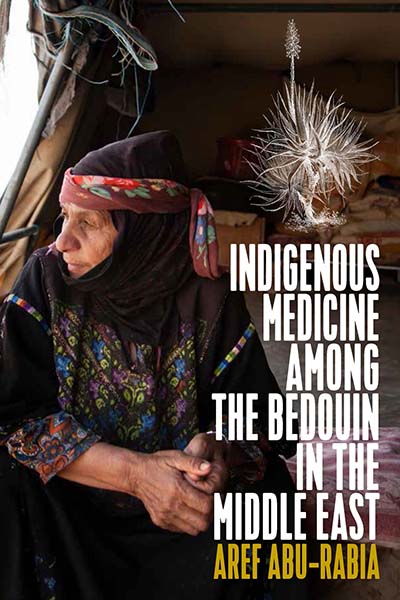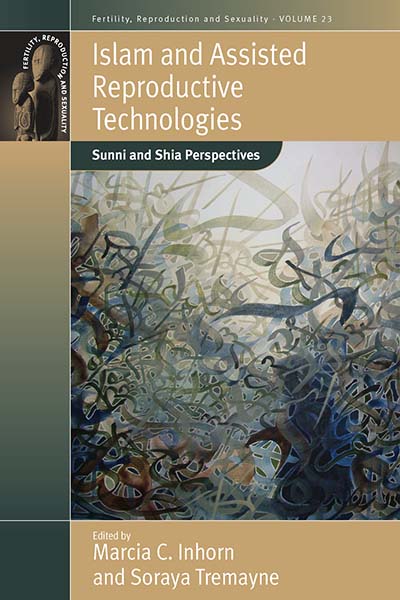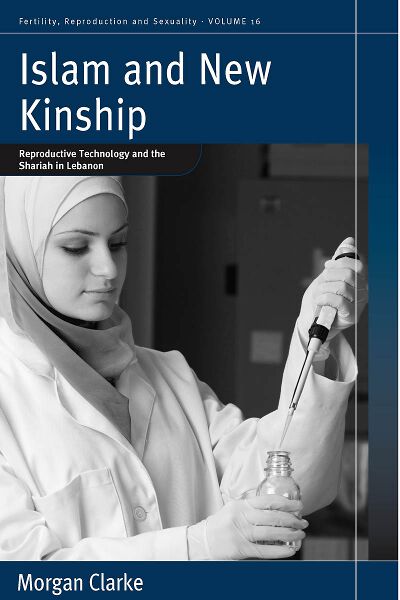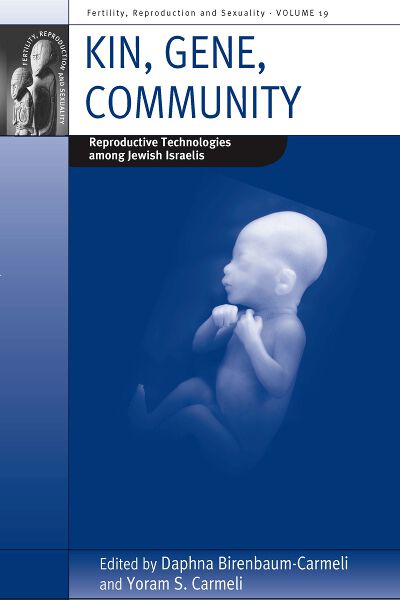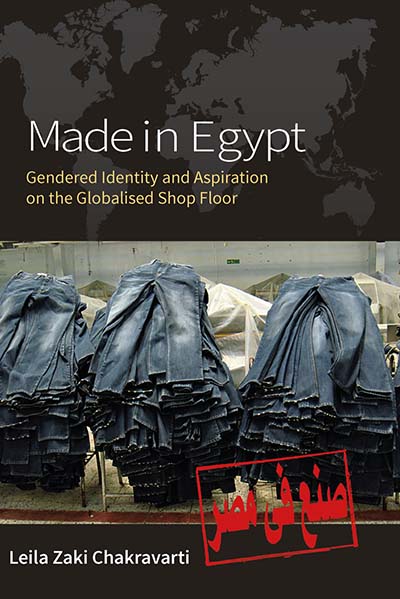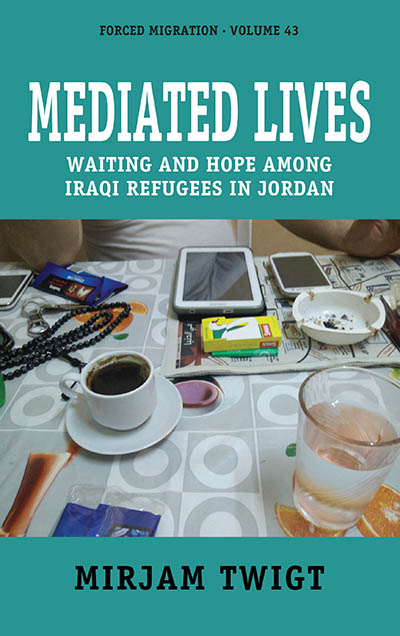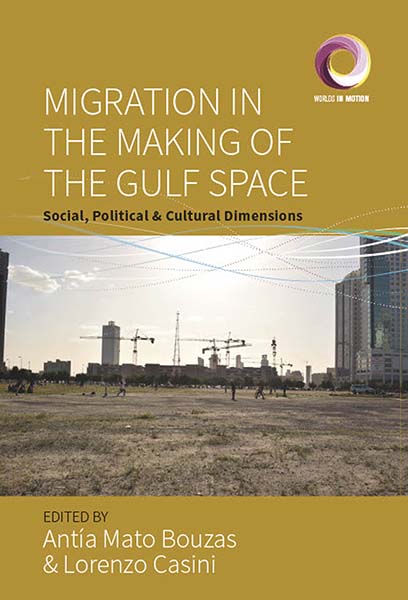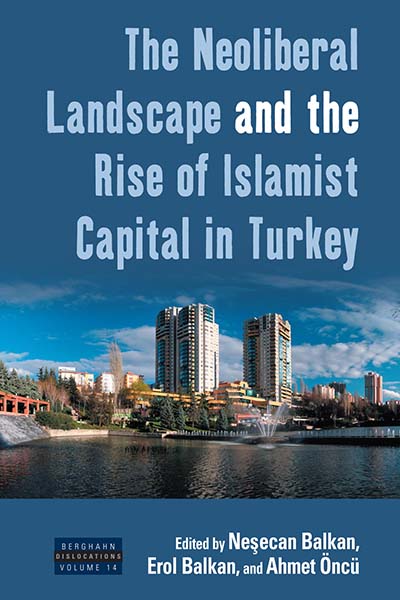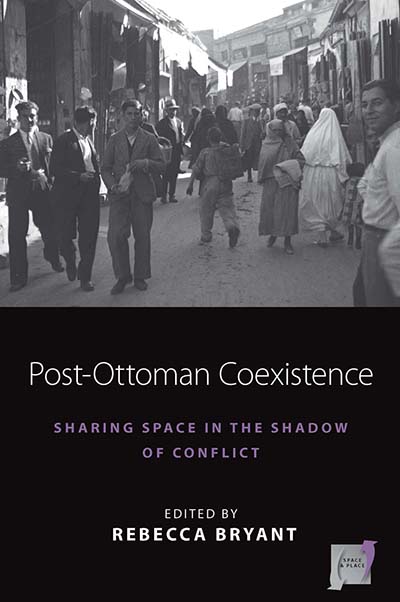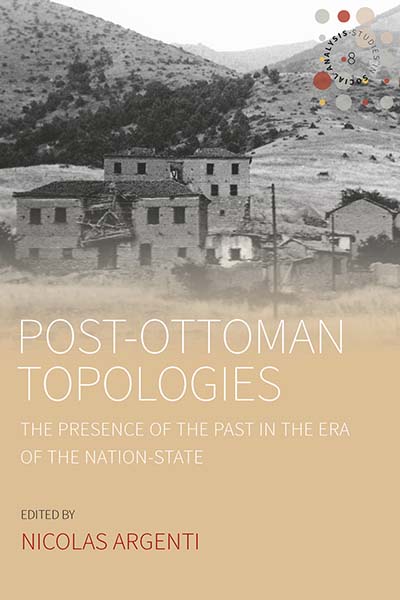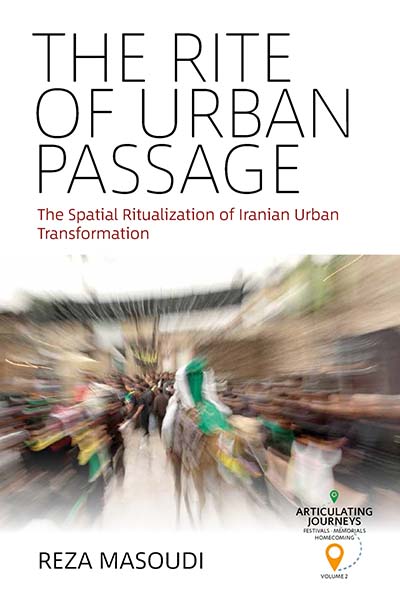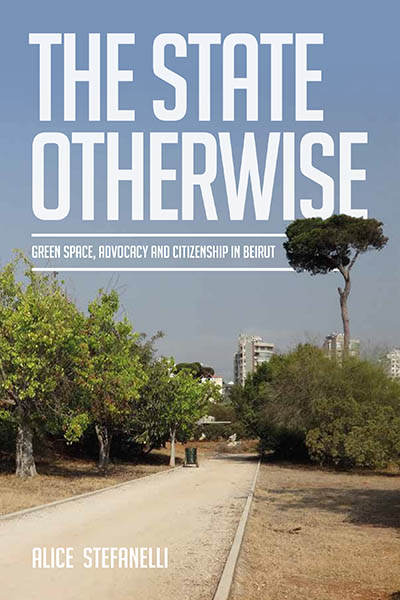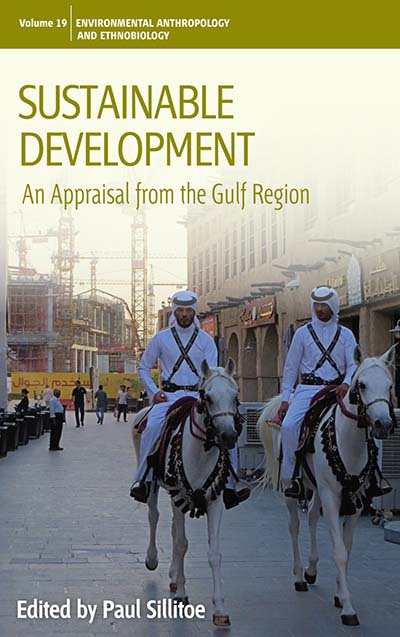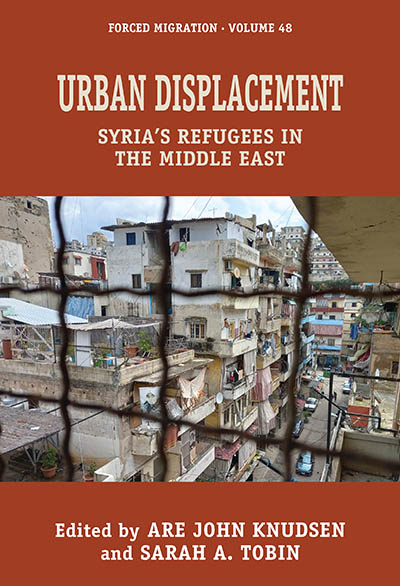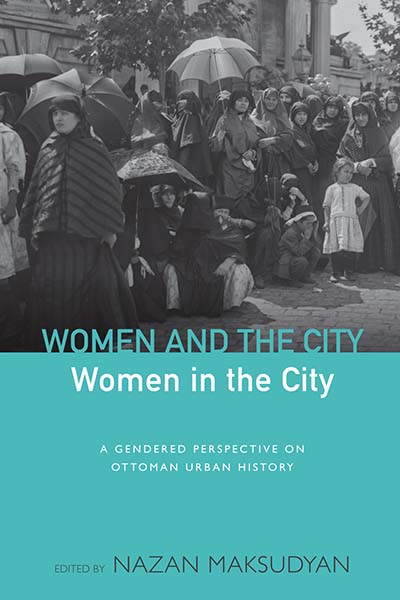Home -> Browse
-

Achieving Procreation
Childlessness and IVF in Turkey
Demircioğlu Göknar, M.
Managing social relationships for childless couples in pro-natalist societies can be a difficult art to master, and may even become an issue of belonging for both men and women. With ethnographic research gathered from two IVF clinics and in two villages in northwestern Turkey, this book explores infertility and assisted reproductive technologies within a secular Muslim population. Göknar investigates the experience of infertility through various perspectives, such as the importance of having a child for women, the mediating role of religion, the power dynamics in same-gender relationships, and the impact of manhood ideologies on the decision for — or against — having IVF.
Subjects: Medical Anthropology Gender Studies and Sexuality
Areas: Middle East & Israel Central/Eastern Europe
-

Arab Spring
Uprisings, Powers, Interventions
Fosshagen, K. (ed)
The events of the Arab Spring presented a dramatic reconstitution of politics and the public sphere through their aesthetic and performative uses of public space. Mass demonstrations have become a new global political form, grounded in the localization of globalizing processes, institutions, and relationships. This volume delves beneath the seemingly chaotic nature of events to explore the structural dynamics underpinning popular resistance and their support or suppression. It moves beyond what has usually been defined as Arab Spring nations to include critical views on Bahrain, the Palestinian territories, and Turkey. The research and analysis presented explores not just the immediate protests, but also the historical realization, appropriation, and even institutionalization of these critical voices, as well as the role of international criminal law and legal exceptionalism in authorizing humanitarian interventions. Above all, it questions whether the revolutions have since been hijacked and the broad popular uprisings already overrun, suppressed, or usurped by the upper classes.
Subject: Anthropology (General)
Area: Middle East & Israel
-

Being Bedouin Around Petra
Life at a World Heritage Site in the Twenty-First Century
Bille, M.
Petra, Jordan became a UNESCO World Heritage site in 1985, and the semi-nomadic Bedouin inhabiting the area were resettled as a consequence. The Bedouin themselves paradoxically became UNESCO Masterpieces of Oral and Intangible Heritage in 2005 for the way in which their oral traditions and everyday lives relate to the landscape they no longer live in. Being Bedouin Around Petra asks: How could this happen? And what does it mean to be Bedouin when tourism, heritage protection, national discourse, an Islamic Revival and even New Age spiritualism lay competing claims to the past in the present?
Subjects: Anthropology (General) Anthropology of Religion Heritage Studies
Area: Middle East & Israel
-

Beyond Ethics and Pragmatism
Evocative Moments in Doing Ethnography
Shokeid, M.
Based on several long-term fieldwork projects in Israel and the Unted States, this book brings together a repertoire of subjective and professional experiences of an anthropologist who attended various theoretical and methodological tutoring settings. That varied panorama of research milieus, ethnographic field sites, and diverse personal engagements, has offered a wide perspective on the complex craft of anthropology. Moreover, it sometimes placed the author in unexpected situations that challenged some habitually accepted modes of personal conduct as well as ethnographic research norms and paradigms, expanding the arena and terms of the anthropological assignments and the record of ethnographic works.
Subjects: Theory and Methodology Anthropology (General)
Areas: North America Middle East & Israel
-

Bulldozer Capitalism
Accumulation, Ruination, and Dispossession in Northeastern Turkey
Evren, E.
Set in the resource frontier of northeastern Turkey, Bulldozer Capitalism studies the rise and decline of an anti-dam/anti-displacement campaign and the political responses to other extractive projects that it helped to shape in its aftermath. The book shows that people can accommodate their own dispossession and displacement if they are directed to negotiate, invest in, and speculate on the destruction of their built environment and nature, and their material and immaterial bonds, wealth, and activities.
Subjects: Political and Economic Anthropology Sociology Sustainable Development Goals
Area: Middle East & Israel
-

Can Academics Change the World?
An Israeli Anthropologist's Testimony on the Rise and Fall of a Protest Movement on Campus
Shokeid, M.
Moshe Shokeid narrates his experiences as a member of AD KAN (NO MORE), a protest movement of Israeli academics at Tel Aviv University, who fought against the Israeli occupation of Palestinian territories, founded during the first Palestinian Intifada (1987-1993). However, since the assassination of Prime Minister Rabin and the later obliteration of the Oslo accord, public manifestations of dissent on Israeli campuses have been remarkably mute. This chronicle of AD KAN is explored in view of the ongoing theoretical discourse on the role of the intellectual in society and is compared with other account of academic involvement in different countries during periods of acute political conflict.
Subjects: Political and Economic Anthropology Jewish Studies Anthropology (General) Educational Studies
Area: Middle East & Israel
-

Collective and State Violence in Turkey
The Construction of a National Identity from Empire to Nation-State
Astourian, S. & Kévorkian, R. (eds)
Turkey has gone through significant transformations over the last century—from the Ottoman Empire and Young Turk era to the Republic of today—but throughout it has demonstrated troubling continuities in its encouragement and deployment of mass violence. In particular, the construction of a Muslim-Turkish identity has been achieved in part by designating “internal enemies” at whom public hatred can be directed. This volume provides a wide range of case studies and historiographical reflections on the alarming recurrence of such violence in Turkish history, as atrocities against varied ethnic-religious groups from the nineteenth century to today have propelled the nation’s very sense of itself.
Subjects: History (General) Genocide History Peace and Conflict Studies
Area: Middle East & Israel
-

Community in a Crowd
Bitcoin and the Quest for Liberty in Tel Aviv
Shapiro, M.
• Set in Tel Aviv’s ‘Bitcoin Embassy’ – a meeting hub established by bitcoin early-adopters at the heart of Israel’s financial epicentre – this book revisits bitcoin’s popular association with radical individualism. Based on two years of in-person encounters and participation in multiple public events, it focuses instead on the collective humanistic promise advocated by members of the local community. Unveiling the ideas, beliefs and myths that underpin bitcoiners’ pursuit of liberation from centralized economic hierarchies, this ethnography offers valuable insights into latter-day techno-utopian visions of society, along with their inherent paradoxes and ultimate nihilist potential.
Subject: Political and Economic Anthropology
Area: Middle East & Israel
-

Conservation and Mobile Indigenous Peoples
Displacement, Forced Settlement and Sustainable Development
Chatty, D. & Colchester, M. (eds)
The second edition of this remarkable volume updates the immense advances in policy and soft international law with regards to the rights of mobile indigenous peoples in conservation.
The contributors to this book examine the interface between conservation and indigenous communities who are forced to move or settle elsewhere to accommodate environmental policies and biodiversity concerns. The case studies investigate successful and not so successful community-managed projects in Africa, the Middle East, South and SouthEastern Asia, Australia and Latin America.
Subjects: Refugee and Migration Studies Environmental Studies (General) Development Studies Sustainable Development Goals
Areas: Africa Asia Middle East & Israel
-

Continental Encampment
Genealogies of Humanitarian Containment in the Middle East and Europe
Knudsen, A. J. & Berg, K. G. (eds)
During the past decade, Syria’s displacement crisis has made the Middle East one of the world’s foremost refugee-hosting regions. The measures to prevent refugees and migrants from leaving the region, and returning those who do, has made the region a zone of containment where millions remain displaced. The volume explores responses to mass migration and traces the genealogy of humanitarian containment from the Ottoman Empire and the emergence of the first refugee camps to the present-day displacement ‘crises’ and the re-bordering of Europe.
Subjects: Anthropology (General) Refugee and Migration Studies Development Studies
Areas: Middle East & Israel Europe
-

Economic Citizenship
Neoliberal Paradoxes of Empowerment
Sa'ar, A.
With the spread of neoliberal projects, responsibility for the welfare of minority and poor citizens has shifted from states to local communities. Businesses, municipalities, grassroots activists, and state functionaries share in projects meant to help vulnerable populations become self-supportive. Ironically, such projects produce odd discursive blends of justice, solidarity, and wellbeing, and place the languages of feminist and minority rights side by side with the language of apolitical consumerism. Using theoretical concepts of economic citizenship and emotional capitalism, Economic Citizenship exposes the paradoxes that are deep within neoliberal interpretations of citizenship and analyzes the unexpected consequences of applying globally circulating notions to concrete local contexts.
Subjects: Anthropology (General) Gender Studies and Sexuality Sociology Political and Economic Anthropology
Area: Middle East & Israel
-

Entrepreneurs of Identity
The Islamic State’s Symbolic Repertoire
Günther, C.
Describing the Islamic State’s ideologues as ‘entrepreneurs of identity’, this book explores how the group defined categories of social identity and used them as tools of communicative and cognitive structuring. Based on a wide dossier of original texts, speeches, images, and videos, the book examines how these ideologues have built a symbolic repertoire around the black flag as well as ideas and social practices such as the dictum to command good and forbid wrong, the supervision of public behaviour, and the oath of allegiance to the Caliph.
Subjects: Anthropology of Religion Political and Economic Anthropology Peace and Conflict Studies
Area: Middle East & Israel
-

Having and Belonging
Homes and Museums in Israel
Jaffe-Schagen, J.
The home and the museum are typically understood as divergent, even oppositional, social realms: whereas one evokes privacy and familial intimacy, the other is conceived of as a public institution oriented around various forms of civic identity. This meticulous, insightful book draws striking connections between both spheres, which play similar roles by housing objects and generating social narratives. Through fascinating explorations of the museums and domestic spaces of eight representative Israeli communities—Chabad, Moroccan, Iraqi, Ethiopian, Russian, Religious-Zionist, Christian Arab, and Muslim Arab—it gives a powerful account of museums’ role in state formation, proposing a new approach to collecting and categorizing particularly well-suited to societies in conflict.
Subjects: Museum Studies Heritage Studies Refugee and Migration Studies
Area: Middle East & Israel
-

The Helmand Baluch
A Native Ethnography of the People of Southwest Afghanistan
Amiri, G. R.
In the 1970s, in his capacity as government representative from the Afghan Institute of Archaeology, Ghulam Rahman Amiri accompanied a joint Afghan-US archaeological mission to the Sistan region of southwest Afghanistan. The results of his work were published in Farsi as a descriptive ethnographic monograph. The Helmand Baluch is the first English translation of Amiri’s extraordinary encounters. This rich ethnography describes the cultural, political, and economic systems of the Baluch people living in the lower Helmand River Valley of Afghanistan. It is an area that has received little study since the early 20th Century, yet is a region with a remarkable history in one of the most volatile territories in the world.
Subjects: Anthropology (General) Archaeology
Area: Middle East & Israel
-

Homo Itinerans
Towards a Global Ethnography of Afghanistan
Monsutti, A.
Afghan society has been marked in a lasting way by war and the exodus of part of its population. While many have emigrated to countries across the world, they have been matched by the flow of experts who arrive in Afghanistan after having been in other war-torn countries such as the Democratic Republic of the Congo, Palestine or East Timor. This book builds on more than two decades of ethnographic travels in some twenty countries, bringing the readers from Afghanistan, Pakistan and Iran to Europe, North America and Australia. It describes the everyday life and transnational circulations of Afghan refugees and expatriates.
Subjects: Anthropology (General) Refugee and Migration Studies
Areas: Middle East & Israel Asia
-

Impotent Warriors
Perspectives on Gulf War Syndrome, Vulnerability and Masculinity
Kilshaw, S.
From September 1990 to June 1991, the UK deployed 53,462 military personnel in the Gulf War. After the end of the conflict anecdotal reports of various disorders affecting troops who fought in the Gulf began to surface. This mysterious illness was given the name “Gulf War Syndrome” (GWS). This book is an investigation into this recently emergent illness, particularly relevant given ongoing UK deployments to Iraq, describing how the illness became a potent symbol for a plethora of issues, anxieties, and concerns. At present, the debate about GWS is polarized along two lines: there are those who think it is a unique, organic condition caused by Gulf War toxins and those who argue that it is probably a psychological condition that can be seen as part of a larger group of illnesses. Using the methods and perspective of anthropology, with its focus on nuances and subtleties, the author provides a new approach to understanding GWS, one that makes sense of the cultural circumstances, specific and general, which gave rise to the illness.
Subjects: Medical Anthropology Peace and Conflict Studies Gender Studies and Sexuality
Area: Middle East & Israel
-

In Pursuit of Belonging
Forging an Ethical Life in European-Turkish Spaces
Rottmann, S, B.
Belonging is a not a state that we achieve, but a struggle that we wage. The struggle for belonging is more difficult if one is returning to a homeland after many years abroad. In Pursuit of Belonging is an ethnography of Turkish migrants’ struggle for understanding, intimacy and appreciation when they return from Germany to their Turkish homeland. Drawing on an established tradition of life story writing in anthropology, Rottmann conveys the struggle to forge an ethical life by relating the experiences of a second-generation German-Turkish woman named Leyla.
Subjects: Anthropology (General) Refugee and Migration Studies Sociology
Areas: Europe Middle East & Israel
-

In the Best Interests of the Child
Loss and Suffering in Adoption Proceedings
Mass, M.
Marshalling her experience as an expert witness in court proceedings on non-consensual, confidential adoption in Israel, Mass describes legal proceedings following the Israeli state petition that declares children eligible for adoption because of alleged parental incapability, and explores the politics of state intervention in the parent/child relationship. The selected case studies present the testimonies of the children, the parents, the designated adoptive parents, and the state’s representatives, as well as the author’s own testimony.
Subject: Sociology
Area: Middle East & Israel
-

Inconceivable Iran
To Reproduce or Not to Reproduce?
Tremayne, S.
Celebrating the 50th volume of the landmark Fertility, Reproduction and Sexuality series, this book offers a much-needed analysis of shifting reproductive policies and practices in the Islamic Republic of Iran, a society that is usually represented as either “revolutionary” or “oppressive.” Instead, Tremayne reflects on more than four decades of research arguing that changing reproductive behaviors on the part of ordinary Iranians must always be viewed against the backdrop of core cultural values and traditions, which are often reinforced, instead of radically altered, by new reproductive technologies, juridical opinions, and state policies.
Subject: Medical Anthropology
Area: Middle East & Israel
-

Indigenous Medicine Among the Bedouin in the Middle East
Abu-Rabia, A.
Modern medicine has penetrated Bedouin tribes in the course of rapid urbanization and education, but when serious illnesses strike, particularly in the case of incurable diseases, even educated people turn to traditional medicine for a remedy. Over the course of 30 years, the author gathered data on traditional Bedouin medicine among pastoral-nomadic, semi-nomadic, and settled tribes. Based on interviews with healers, clients, and other active participants in treatments, this book will contribute to renewed thinking about a synthesis between traditional and modern medicine — to their reciprocal enrichment.
Subject: Medical Anthropology
Area: Middle East & Israel
-

Islam and Assisted Reproductive Technologies
Sunni and Shia Perspectives
Inhorn, M. C. & Tremayne, S. (eds)
How and to what extent have Islamic legal scholars and Middle Eastern lawmakers, as well as Middle Eastern Muslim physicians and patients, grappled with the complex bioethical, legal, and social issues that are raised in the process of attempting to conceive life in the face of infertility? This path-breaking volume explores the influence of Islamic attitudes on Assisted Reproductive Technologies (ARTs) and reveals the variations in both the Islamic jurisprudence and the cultural responses to ARTs.
Subject: Medical Anthropology
Area: Middle East & Israel
-

Islam and New Kinship
Reproductive Technology and the Shariah in Lebanon
Clarke, M.
Assisted reproductive technologies such as in vitro fertilization have provoked global controversy and ethical debate. This book provides a groundbreaking investigation into those debates in the Islamic Middle East, simultaneously documenting changing ideas of kinship and the evolving role of religious authority in the region through a combination of in-depth field research in Lebanon and an exhaustive survey of the Islamic legal literature. Lebanon, home to both Sunni and Shiite Muslim communities, provides a valuable site through which to explore the overall dynamism and diversity of global Islamic debate. As this book shows, Muslim perspectives focus on the moral propriety of such controversial procedures as the use of donor sperm and eggs as well as surrogacy arrangements, which are allowed by some authorities using surprising and innovative legal arguments. These arguments challenge common stereotypes of the rigidity and conservatism of Islamic law and compel us to question conventional contrasts between ‘liberal’ and Islamic notions of moral freedom, as well as the epistemological assumptions of anthropology’s own ‘new kinship studies’. This book will be essential reading for anyone interested in contemporary Islam and the impact of reproductive technology on the global social imaginary.
Subjects: Medical Anthropology Anthropology of Religion Gender Studies and Sexuality
Area: Middle East & Israel
-

Kin, Gene, Community
Reproductive Technologies among Jewish Israelis
Birenbaum-Carmeli, D. & Carmeli, Y.S. (eds)
Israel is the only country in the world that offers free fertility treatments to nearly any woman who requires medical assistance. It also has the world's highest per capita usage of in-vitro fertilization. Examining state policies and the application of reproductive technologies among Jewish Israelis, this volume explores the role of tradition and politics in the construction of families within local Jewish populations. The contributors—anthropologists, bioethicists, jurists, physicians and biologists—highlight the complexities surrounding these treatments and show how biological relatedness is being construed as a technology of power; how genetics is woven into the production of identities; how reproductive technologies enhance the policing of boundaries. Donor insemination, IVF and surrogacy, as well as abortion, pre-implantation genetic diagnosis and human embryonic stem cell research, are explored within local and global contexts to convey an informed perspective on the wider Jewish Israeli environment.
Subject: Medical Anthropology
Area: Middle East & Israel
-

Made In Egypt
Gendered Identity and Aspiration on the Globalised Shop Floor
Chakravarti, L. Z.
This ground-breaking ethnography of an export-orientated garment assembly factory in Egypt examines the dynamic relationships between its managers – emergent Mubarak-bizniz (business) elites who are caught in an intensely competitive globalized supply chain – and the local daily-life realities of their young, educated, and mixed-gender labour force. Constructions of power and resistance, as well as individual aspirations and identities, are explored through articulations of class, gender and religion in both management discourses and shop floor practices. Leila Chakravarti’s compelling study also moves beyond the confines of the factory, examining the interplay with the wider world around it.
Subjects: Gender Studies and Sexuality Anthropology (General) Sociology
Area: Middle East & Israel
-

Mediated Lives
Waiting and Hope among Iraqi Refugees in Jordan
Twigt, M.
Using the example of Iraqi refugees in Jordan's capital of Amman, this book describes how information and communication technologies (ICTs) play out in the everyday experiences of urban refugees, geographically located in the Global South, and shows how interactions between online and offline spaces are key for making sense of the humanitarian regime, for carving out a sense of home and for sustaining hope. This book paints a humanizing account of making do amid legal marginalization, prolonged insecurity, and the proliferation of digital technologies.
Subjects: Refugee and Migration Studies Anthropology (General) Media Studies
Area: Middle East & Israel
-

Migration as Anchorage
Ethnography of a Palestinian Family in London
Obeid, M.
On a temporary visit to London, a Palestinian family found themselves unable to return to Gaza during Israel’s 2008 war on their city. Understanding their stay in London as an act of ‘anchoring’, the family opened a Palestinian café and sought to make their lives – as individuals, as a family and as a community – viable in the face of uncertainty. By following the stories of various family members as they struggled to recreate a sense of home, this moving ethnography introduces the concept of anchorage as a novel lens to understand migration, home and place, highlighting the fluidity, temporariness and serendipity of these experiences.
Subjects: Refugee and Migration Studies Anthropology (General) Peace and Conflict Studies
Areas: Middle East & Israel Europe
-

Migration in the Making of the Gulf Space
Social, Political, and Cultural Dimensions
Bouzas, A. M. & Casini, L. (eds)
Combining visual and literary analyses and original ethnographic studies as part of a more general political reflection, Migration in the Making of Gulf Space examines the role of migrants and non-citizens in the processes of settling in the Arab States of the Gulf region. The contributions underscore the aspirational character of the Gulf as a place where migrant recognition can be attained while also reflecting on practices of exclusion. The book is the result of an interdisciplinary dialogue among scholars and includes an original contribution by the acclaimed author of the novel Temporary People, Deepak Unnikrishnan.
Subjects: Refugee and Migration Studies Anthropology (General) Sociology
Area: Middle East & Israel
-

The Neoliberal Landscape and the Rise of Islamist Capital in Turkey
Balkan, N., Balkan, E. & Öncü, A. (eds)
Islamist capital accumulation has split the Turkish bourgeoisie and polarized Turkish society into secular and religious social groupings, giving rise to conflicts between the state and political Islam. By providing a long-term historical perspective on Turkey's economy and its relationship to Islamism, this volume explores how Islamism as a political ideology has been utilized by the conservative bourgeoisie in Turkey, and elsewhere, to establish hegemony over labor. The contributors analyze the relationship between neoliberalism and the political fortunes of the Islamist Justice and Development Party (AKP), and examine the similarities and differences amongst new factions in the secular and Islamic middle class that have benefited economically, socially, and culturally during the AKP's reign. The articles also investigate the impact of the Gülen Movement and the role of the media in shaping the contours of intra-class struggle within contemporary Turkish political and social life.
Subject: Political and Economic Anthropology
Area: Middle East & Israel
-

Post-Ottoman Coexistence
Sharing Space in the Shadow of Conflict
Bryant, R. (ed)
In Southeast Europe, the Balkans, and Middle East, scholars often refer to the “peaceful coexistence” of various religious and ethnic groups under the Ottoman Empire before ethnonationalist conflicts dissolved that shared space and created legacies of division. Post-Ottoman Coexistence interrogates ways of living together and asks what practices enabled centuries of cooperation and sharing, as well as how and when such sharing was disrupted. Contributors discuss both historical and contemporary practices of coexistence within the context of ethno-national conflict and its aftermath.
Subjects: Peace and Conflict Studies Sociology
Areas: Europe Middle East & Israel
-

Post-Ottoman Topologies
The Presence of the Past in the Era of the Nation-State
Argenti, N. (ed)
How are historians and social scientists to understand the emergence, the multiplicity, and the mutability of collective memories of the Ottoman Empire in the political formations that succeeded it? With contributions focussing on several of the nation-states whose peoples once were united under the aegis of Ottoman suzerainty, this volume proposes new theoretical approaches to the experience and transmission of the past through time. Developing the concept of topology, contributors explore collective memories of Ottoman identity and post-Ottoman state formation in a contemporary epoch that, echoing late modernity, we might term “late nationalism”.
Subjects: Sociology Anthropology (General) Memory Studies
Areas: Southern Europe Middle East & Israel
-

The Rite of Urban Passage
The Spatial Ritualization of Iranian Urban Transformation
Masoudi, R.
The Iranian city experienced a major transformation when the Pahlavi Dynasty initiated a project of modernization in the 1920s. The Rite of Urban Passage investigates this process by focusing on the spatial dynamics of Muharram processions, a ritual that commemorates the tragic massacre of Hussein and his companions in 680 CE. In doing so, this volume offers not only an alternative approach to understanding the process of urban transformation, but also a spatial genealogy of Muharram rituals that provides a platform for developing a fresh spatial approach to ritual studies.
Subjects: Anthropology (General) Urban Studies Anthropology of Religion
Area: Middle East & Israel
-

The State Otherwise
Green Space, Citizenship and Advocating for the Public in Beirut
Stefanelli, A.
The city of Beirut is increasingly congested, polluted and suffocating. Its already limited green public spaces are under growing threat of privatisation and redevelopment. The State Otherwise examines the difficult predicament of Beirut’s public green spaces from the vantage point of the civic campaign to reopen Horsh al Sanawbar, the city’s largest public park. Analysing the relationship between neoliberal sectarianism, private interest and political action, the book asks questions about the nature of privatisation of public property, civic society’s potential to mobilise individuals and the role of public authorities in promoting the public good.
Subjects: Political and Economic Anthropology Environmental Studies (General) Sustainable Development Goals
Area: Middle East & Israel
-

Sustainable Development
An Appraisal from the Gulf Region
Sillitoe, P. (ed)
With growing evidence of unsustainable use of the world’s resources, such as hydrocarbon reserves, and related environmental pollution, as in alarming climate change predictions, sustainable development is arguably the prominent issue of the 21st century. This volume gives a wide ranging introduction focusing on the arid Gulf region, where the challenges of sustainable development are starkly evident. The Gulf relies on non-renewable oil and gas exports to supply the world’s insatiable CO2 emitting energy demands, and has built unsustainable conurbations with water supplies dependent on energy hungry desalination plants and deep aquifers pumped beyond natural replenishment rates. Sustainable Development has an interdisciplinary focus, bringing together university faculty and government personnel from the Gulf, Europe, and North America -- including social and natural scientists, environmentalists and economists, architects and planners -- to discuss topics such as sustainable natural resource use and urbanization, industrial and technological development, economy and politics, history and geography.
Subjects: Environmental Studies (General) Development Studies Sustainable Development Goals
Area: Middle East & Israel
-

Urban Displacement
Syria's Refugees in the Middle East
Knudsen, A. J. & Tobin, S. A. (eds)
Syria’s massive displacement (from 2012 onwards) is one of the largest, most complex and intractable humanitarian emergencies of today. More than 5.7 million Syrian refugees live mainly in cities and urban areas throughout the Middle East. Urban Displacement examines multiple dimensions of this crisis from political and socioeconomic predicaments to questions of social belonging, the complexity of the international, regional and national responses and how they affect urban spaces. The volume brings together experts in the field of forced migration studies and displacement in the Middle East and presents a range of in-depth ethnographic data, cross-sectional surveys and policy analyses.
Subjects: Refugee and Migration Studies Political and Economic Anthropology
Area: Middle East & Israel
-

Women and the City, Women in the City
A Gendered Perspective on Ottoman Urban History
Maksudyan, N. (ed)
An attempt to reveal, recover and reconsider the roles, positions, and actions of Ottoman women, this volume reconsiders the negotiations, alliances, and agency of women in asserting themselves in the public domain in late- and post-Ottoman cities. Drawing on diverse theoretical backgrounds and a variety of source materials, from court records to memoirs to interviews, the contributors to the volume reconstruct the lives of these women within the urban sphere. With a fairly wide geographical span, from Aleppo to Sofia, from Jeddah to Istanbul, the chapters offer a wide panorama of the Ottoman urban geography, with a specific concern for gender roles.
Subjects: Gender Studies and Sexuality Urban Studies History (General)
Area: Middle East & Israel
-

Women in Israel
Anthropological, Feminist, and Personal Perspectives
Hertzog, E.
There are diverse and complex problems faced by women in Israel. This book explores women's roles in teachers' labor conflicts, threatened motherhood within the welfare system, bureaucratic encounters faced by Ethiopian immigrant women, the lack of political representation amongst women, feminist activism against the sex industry, and gender power dynamics in gyms. It is a comprehensive feminist examination of women's diverse experiences in Israeli society over four decades and analyzes society during this time. As an ethnography, the book emphasizes a commitment to social justice and equality, and challenges prevailing social and gender research approaches.
Subjects: Political and Economic Anthropology Gender Studies and Sexuality
Area: Middle East & Israel


